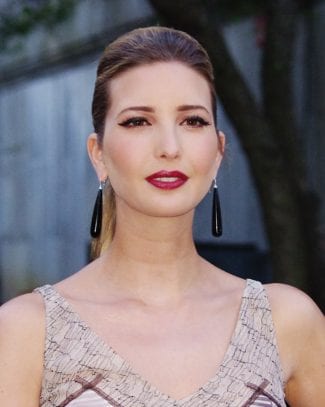Overseas companies are looking to “cash in” on Trump’s presidency by making the most of his daughter’s name. [1] Despite a downward trend in her company’s domestic sales, [2] Ivanka’s brand has become a hot commodity in China, where over sixty-five trademark applications have been filed by more than twenty-four different companies—and that is just for the name “Ivanka.” [3] The Chinese trademark office received over 200 applications for renditions of the First Daughter’s name between November 10, 2016 to December 31, 2016. [4].
Ivanka is not the first to face these issues as the terms “trademark hijacking” and “bad-faith filing” are commonly understood to refer to companies that file trademark applications in countries where the subject does not have her own brand lawfully trademarked. [5] According to the Washington Post, “taking advantage of—or faking—foreign brands is common in China, as is the practice of ‘trademark squatting,’ whereby someone preemptively registers a spurious trademark claim in the hope they will later be paid to relinquish.” [6].
Seeking trademarks for products ranging from wallpaper to alcohol to cosmetics to nutritional supplements, the First Daughter’s name is becoming a branding commodity in multiple industries. [7] One company based in Beijing filed ten separate applications to use the name “Ivanka” on its weight loss products. [8] Already, the Global Times reported over forty companies who started to use the Chinese characters for Ivanka’s name to brand goods such as cosmetics and underwear. [9] In total, 258 trademark applications were submitted in the last two months of 2016, all from businesses seeking to use Ivanka, Ivanka Trump, or a Chinese variation of the name. [10]
Ivanka herself has nine trademarks registered in China with an additional twenty-six pending applications. [11] With her own predominantly fashion related products, [12] companies are attempting to capitalize on association with what is now, more than ever, a house-hold name. [13] One Chinese business owner, Li Jun, heard one of Ivanka’s television speeches and commented that he “was captivated by her incomparable disposition and air, even the way she tucked her hair behind her ear. Her speech was full of elegance and charisma”; he filed for a trademark to use the First Daughter’s name. [14] Sentiments such as these have led not only to product branding, but also to the association of the First Daughter’s name with services, including medical procedures claiming to make people resemble the First Daughter. [15]
Recent revisions to Chinese trademark law could help solve these issues. [16] These changes theoretically created tighter controls and made it illegal to register trademarks that make “use of the names of public figures involved in politics, economy, culture and religion.”[17] The new provisions include higher damage awards, which are now capped at $480,000, a six fold increase from the previous damage cap. [18] Other measures aimed at reducing bad-faith filing include faster return of trademark applications and “stricter standards against the unauthorized use of ‘well known’ marks.”[19]
But, it remains to be seen whether these new guidelines issued by the Supreme People’s Court, China’s highest court, [20] will carry enough weight to stop all 258 applications associated with Ivanka’s name. [21] Other celebrities, including Michael Jordan, are also targets for overseas marketing and branding. [22] A suit involving a Chinese shoemaker recently ended after a four-year conflict involving the use of Michael Jordan’s image and Chinese name. [23] Apple had similar issues in China and is still unable to use its iPhone trademark because the court already awarded a small leather goods manufacturer the rights. [24] This is not the only trademark issue Apple faced in China—Chinese courts previously ordered the Apple to pay a tech company from Shenzhen $60 million to use the name “iPad.” [25]
Overall however, changes to trademark rules resulted in increased numbers of “intellectual property-related actions filed by non-native entities,” including companies like Facebook, Apple, BMW, Christian Dior, Max Mara, and Goldman Sachs. [26] It remains to be seen if new laws or regulations will make a difference or whether businesses will continue to file in bad-faith. The same holds for the trademark applications filed for the rights to use the First Daughter’s name. But as Li said, no matter what, “I [needed] to try.” [27]

